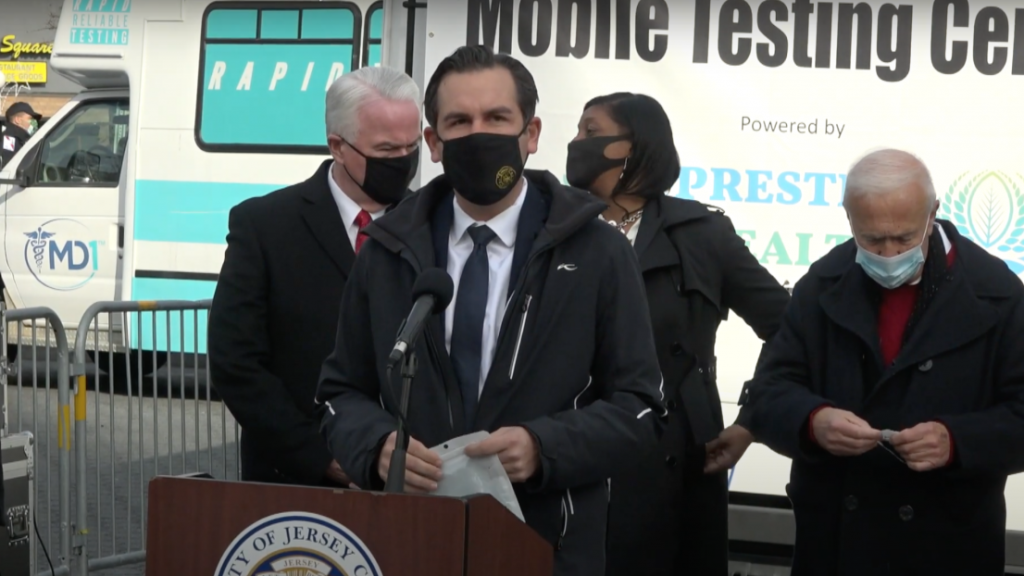Jersey City Mayor Steven Fulop is calling on the State of New Jersey to be more proactive with the COVID-19 vaccine to potentially be available as early as next month, noting that they need to do more to educate people about the side effects.

” … The state needs to be doing more on education for ppl of side effects. We don’t feel like they are doing anything on this front and meanwhile they are asking residents to be injected with small doses of Corona virus [sic],” Fulop wrote in a tweet thread this morning.
The mayor indicates that if the first phase of the vaccine rollout begins next month, with first responders and healthcare workers getting top priority, Jersey City will need the state to be a reliable partner to ensure 70 percent of residents get vaccinated.
He also asks for them to “do outreach in all languages” and provide more guidance to doctors on how to advise their patients.
According to the U.S. Centers for Disease Control (CDC), COVID-19 mRNA vaccines “do not use the live virus that causes COVID-19, though doctors are calling on them to warn people that the vaccination process won’t be “a walk in the park,” CNBC reported.
“They are going to know they had a vaccine. They are probably not going to feel wonderful. But they’ve got to come back for that second dose,” Dr. Sandra Fryhofer of the American Medical Association said during a virtual meeting this week, according to CNBC.
During a statewide coronavirus briefing on November 20th, New Jersey Department of Health Commissioner Dr. Judith Persichilli provided some preliminary information regarding the coronavirus vaccine rollout.
“In Phase 1(a), the first shipment of Pfizer vaccine will be reserved for paid and unpaid persons serving in healthcare settings who have the potential for direct and indirect exposure to patients or infected materials. This includes approximately 650,000 workers in New Jersey,” she said.
“It includes staff who work in hospitals, urgent care centers, community health centers, doctors and dentist offices, pharmacies, dialysis centers, and home healthcare workers. We consider staff and residents in long-term care facilities to be a high priority. There are 90,000 residents in our long-term care facilities, and they are served by 100,000 staff.”
She continued that most long-term care facilities will receive vaccinations through parameters set by the federal government with CVS and Walgreens.
The Pfizer vaccine is expected to be the first one available in mid-December, followed by a vaccine manufactured by Moderna, Persichilli explained.
Editor’s note: This story has been updated with new information.










